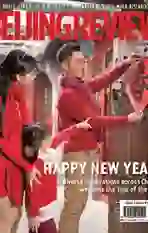Shifting Traditions
2019-02-18
The Spring Festival, also known as the Chinese Lunar New Year, fell on February 5 this year. Beijing Review interviewed people from all walks of life ahead of the festivities about their memories of the Spring Festival to document how it has evolved over the years. The shifts in the ways people celebrated the Spring Festival since the founding of the Peoples Republic of China in 1949 mirror Chinas social and economic changes over the past decades.
Historically, those working in big cities returned home, usually to smaller cities, towns and rural areas, to celebrate the festival with their families, forming the largest annual human migration on Earth. The Spring Festival travel rush, or chunyun in Chinese, has become famous throughout the world.
There is a Chinese proverb which states: “No matter if you have made money or not, you should go home for the Spring Festival.” It reflects migrant workers longing for a reunion with their family members and stresses the importance of the holiday.
However, in recent years, especially prior to the 2019 Spring Festival, new trends have emerged as many migrants in cities no longer go home for the festival but have their families come to them, creating a new phenomenon called reverse Spring Festival travel rush. Some also choose to celebrate the festival by traveling, within China or overseas, to experience customs and traditions different from their own.
The Spring Festival is no longer simply a time for a family reunion but an occasion for cultural exchanges as more and more people choose to spend the festival discovering pastures new.
Meanwhile, the Spring Festival travel rush which has put huge pressure on the countrys transportation system over the past decades has in turn prompted the development of Chinas high speed railways and expressways. In recent years, many train and bus stations in China have used cutting-edge Internet technologies such as facial recognition to facilitate check-in to improve the passenger experience.
The combination of tradition and modern lifestyles has enriched the meaning of the festival as people renegotiate a new relationship with this important Chinese holiday.
